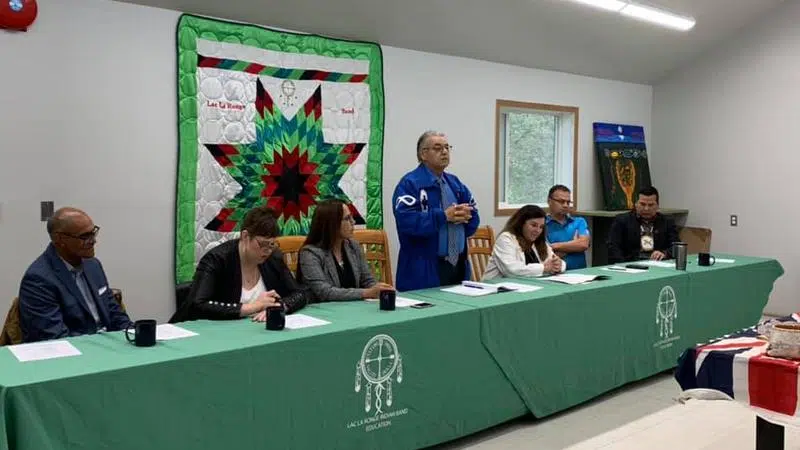
All spots filled for new teacher education program underway in La Ronge
It was an exciting day for all those involved with the commencement of the Northern Saskatchewan Indigenous Teacher Education Program on Thursday.
Representatives from Gabriel Dumont Institute (GDI), the Lac La Ronge Indian Band (LLRIB) and the University of Regina were on-hand to meet the new 26 post-secondary students who dream of one day becoming a teacher. The U of R sent a team of 10 employees to register students in their classes, as well as take them through options available for tuition, books and a living allowance. According to GDI Executive Director Geordy McCaffrey, every year there will be an intake into the program so there will eventually be graduates every year.
“We are celebrating our 40th anniversary and it’s like an anniversary gift that came early,” he said. “We are really anxious about starting a teacher education program in the North. We already have three in the South, so this fourth addition will complete the GDI family.”
The program currently has two employees including Morris Cook and April Chiefcalf, who are both working on PhDs and have extensive experience with the former Northern Teacher Education Program. As the new program matures, McCaffrey stated more employees will be hired alongside sessional instructors who will come solely to teach specific classes.


